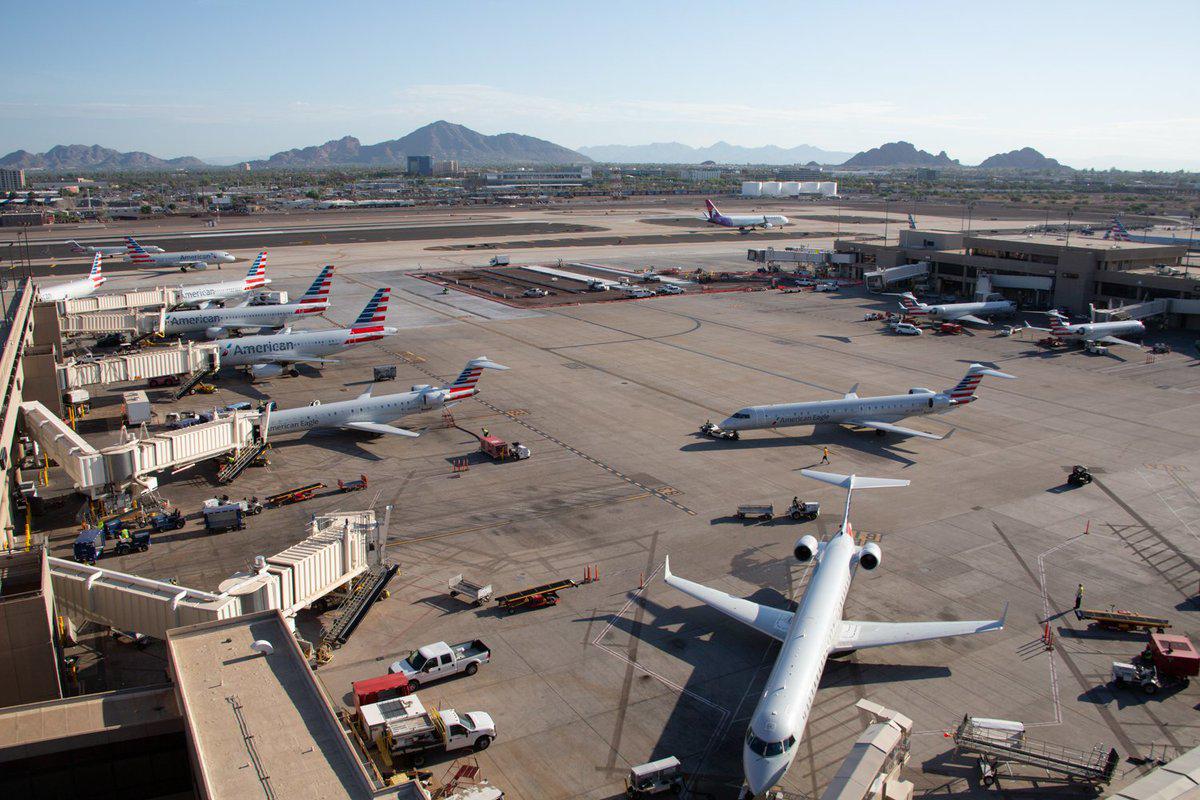
WASHINGTON—U.S. President Donald Trump said his administration will be “backing the airlines 100%,” hours after Airlines for America (A4A) called on Congress and the White House for a $58 billion emergency package of federal aid to combat anemic demand caused by the COVID-19 pandemic.
“We’ll be backstopping the airlines and helping them very much,” Trump told reporters in the White House briefing room Mar. 16. “We’re going to be in a position to help the airlines very much.”
His comments came shortly after A4A appealed for an emergency package of federal grants, loans and tax relief to help passenger and cargo airlines stave off liquidity shortfalls through the end of the year. The package would include $25 billion in immediate grants for part 121 airlines and $4 billion for cargo carriers, in addition to a voluntary liquidity facility program that would make the same amounts available to both groups as interest-free, unsecured loans.
“The current economic environment is simply not sustainable, and it is compounded by the fact that the crisis does not appear to have an end in sight,” A4A said in its request for relief.
The voluntary liquidity facility program envisioned by A4A would see the Federal Reserve either purchase financial instruments from airlines or provide them zero-interest unsecured loans, freeing up a further $25 billion for passenger carriers and another $4 billion for cargo operators.
A4A is also seeking temporary repeal of all federal excise taxes paid by Part 121 air carriers through the end of 2021 and is requesting that all excise taxes paid into the Airport and Airway Trust Fund so far this year be remitted to airlines through a tax rebate.
The request for government aid comes on the heels of a two-week period that saw the position of U.S. carriers rapidly deteriorate following cascading worldwide travel bans, including a White House ban on most travel from Europe and the U.K over concerns about the spread of the COVID-19-causing novel coronavirus.
The sharp downturn in demand has caused net bookings for the next few months to exceed negative 100%, with some carriers reporting cancellations outpacing new bookings by more than a 2 to 1 ratio. “There is still significant uncertainty underlying assumptions, but today’s context is much worse than 9/11,” A4A said.
Using financial data from its member airlines, A4A has modeled positive and negative scenarios of airline liquidity levels through the end of the year, depending on the accessibility of outside cash and capital markets.
Under the optimistic scenario, American carriers would see net liquidity levels drop a combined 45% to $18 billion through the first six months of the year, falling further to $16 billion by year-end.
Under the pessimistic scenario, without sufficient sources of cash, A4A forecasts a 67% net drop in liquidity for passenger carriers by June to $12.8 billion, deepening to a deficit of negative $14 billion by the end of the year. “As of the morning of Mar. 16, the pessimistic scenario is looking most likely,” the group said.
Should the White House enact a 30-day domestic travel ban, as has been rumored, the liquidity crisis facing airlines would be even more severe, worsening the outlook of the positive scenario by an additional $7 billion and the negative scenario by a further $10 billion.





